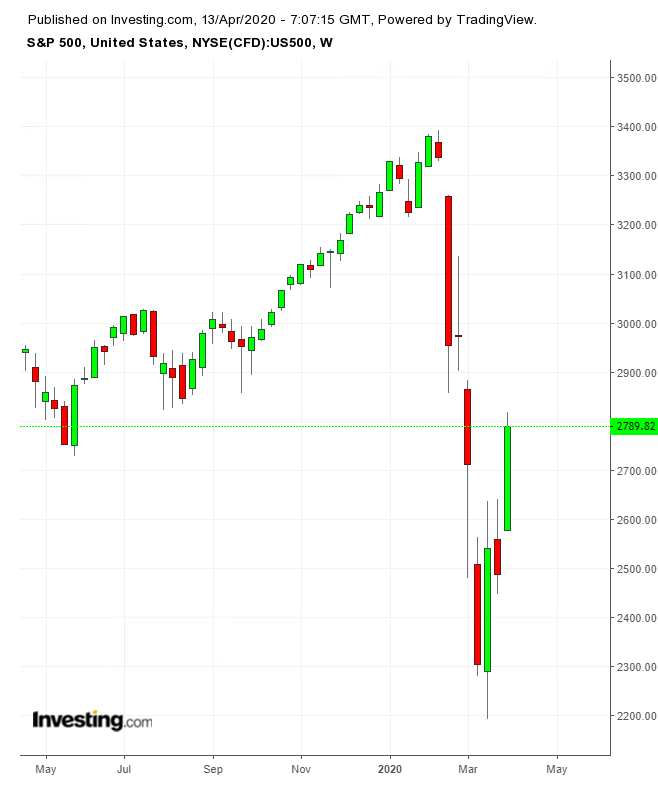Nobody can complain that the U.S. Federal Reserve isn’t throwing trillions of dollars at the domestic and global economy to cope with the economic impact of the coronavirus pandemic. And it seems to be enough at the moment, combined with unprecedented fiscal stimulus and a slowing of infections in many places, to stabilize the financial markets and keep credit flowing.
What people can complain about, however, is that the U.S. central bank's policymakers didn’t act sooner, in a bolder fashion. The minutes of two March emergency meetings released last week give us an idea of why they didn’t.
Fed: Where's The Alarm Or Empathy?
Even at the second videoconference meeting on March 15—when markets were tanking, investors were panicking and people were already unable to go to work, prompting the Federal Open Market Committee (FOMC) to lower the benchmark interest rate a full percentage point to 0 to 0.25 percent, after having already lowered it a half point on March 3—even then there was this astounding statement:
“Some participants remarked that the committee's policy actions regarding the target range and balance sheet could be interpreted as conveying negative news about the economic outlook.”
Really? People were going to start worrying about the economic outlook because the Fed lowered rates a percentage point when hospital emergency rooms were filled to overflowing, doctors were playing god with the ventilators that were available to determine who would live, and the entire global economy had ground to a halt?

Fed policymakers evidently have an inflated sense of their own importance if they think what they do in the face of an economic tsunami makes any difference how afraid people are. What is missing from the latest minutes, which are couched in the same dry bureaucratic language of all the minutes, is any sense of alarm or empathy.
Ditto for the speech by Fed Chair Jerome Powell on April 9, which highlighted the other measures the Fed was taking as lender of last resort in fairly dry language. These measures are all useful, and, unlike the halting implementation of the government programs to aid business, can be more immediate in their effect. At least Powell showed some human sympathy, expressing his gratitude to frontline providers as well as the hard-working staff at the Fed.
The U.S. will be grateful in retrospect that the Fed finally stepped up to support the economy and financial markets, and, presumably, will provide the same support for the recovery. What market participants may puzzle over is what took them so long and what kind of cocoon the policymakers are living in that they hesitate pulling out all the stops when it’s patently necessary.
ECB: Absence Of Bold Leadership
The situation was perhaps even worse at the European Central Bank (ECB). Powell can keep the 10 voting members of the FOMC in line much more easily than ECB President Christine Lagarde can corral the 25 members of the governing council.
After Lagarde badly flubbed the ECB’s first emergency meeting on March 12 by carelessly remarking that it wasn’t the central bank’s job to narrow the spreads on government bond yields, she was at pains in the March 18 meeting to relaunch the asset purchase program and pushed for removing the self-imposed limits on purchases from individual issuers to provide more support where needed.
Yet, “some members” hesitated about communicating the absence of limits. “It was recalled that these limits were one of the safeguards to ensure that the governing council acted within its mandate,” the minutes recounted.
“Moreover, at present there appeared to be sufficient scope in the evolution of the purchasable universe to avoid a premature discussion on possible lifting of these limits, which could imply incurring a higher risk of being perceived as getting closer to monetary financing.”
It was reliably reported that Bundesbank President Jens Weidmann and Dutch central bank president Klaas Knot were hesitant, among others. It is Germany and the Netherlands that are tearing apart the European Union at the political level with their blinkered refusal to mutualize debt, so it is no surprise these are the countries hobbling the ECB’s response in monetary policy.
The ECB sidestepped the limits issue by putting the €750 billion of new asset purchases in a special envelope, the Pandemic Emergency Purchase Programme, endowing it with more flexibility than the usual program. This allowed Lagarde to talk vaguely about “no limits” to the ECB’s commitment to the single currency in the obvious hope this would go down in history with her predecessor Mario Draghi’s “whatever it takes” remark.
Draghi, for his part, took to the Financial Times with a column redolent of the empathy so missing from the Fed and the ECB minutes, as well as a radical solution to the post-pandemic economy that gives the term “no limits” some substance.
“The coronavirus pandemic is a human tragedy of potentially biblical proportions,” wrote the former ECB president, and is accompanied by “a huge and unavoidable economic cost.” To protect productive capacity that would otherwise be lost in a wave of defaults, Draghi—who, unlike Powell and Lagarde, is an economist by training and a central banker by profession—says governments must absorb the defaults, effectively canceling the debt.
“The challenge we face is how to act with sufficient strength and speed to prevent the recession from morphing into a prolonged depression, made deeper by a plethora of defaults leaving irreversible damage,” Draghi wrote.
Lagarde, who mismanaged the International Monetary Fund (IMF) throughout the euro crisis to the benefit of Germany and France and the detriment of southern Europe, dismissed Draghi’s proposal as “unthinkable,” showing once again the absence of bold leadership at the world’s second most important central bank.
There is unlikely to be a reaction of “sufficient strength and speed”—at least at the European level—amid the foot-dragging of the ECB governing council and the dithering of EU political leaders.
